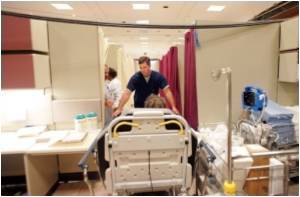In older patients, major surgery can increase the risk of postoperative delirium. An intervention program called modified Hospital Elder Life Program reduced the risk.

‘The intervention program called modified Hospital Elder Life Program (mHELP) helps prevent the risk of delirium and reduce hospital length of stay for older patients.’





The intervention, modified Hospital Elder Life Program (mHELP), consisted of three protocols administered daily by a nurse: orienting communication (such as inquiring about the information in the context of the present day to reinforce orientation); oral (including brushing teeth) and nutritional assistance; and early mobilization. Intervention group participants received all three mHELP protocols postoperatively, in addition to usual care, as soon as they arrived in the inpatient ward and until hospital discharge.Postoperative delirium occurred in 6.6 percent of mHELP participants vs 15.1 percent of control individuals (odds of delirium reduced by 56 percent). Intervention group participants received the mHELP for a median of 7 days, and they had a median LOS that was two days shorter (12 vs 14 days).
Several limitations of the study are noted in the article, including that data on postoperative complications were not collected, which are important risk factors for delirium and might have also been affected by mHELP and contributed to the study findings.
"The key to the effectiveness of the 3 mHELP components is their consistent and daily application, with high adherence rates. Medical centers that want to advance postoperative care for older patients might consider mHELP as a highly effective starting point for delirium prevention," the authors write.
Source-Eurekalert










